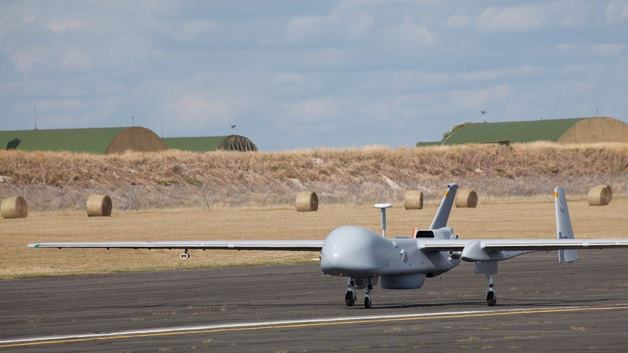
Crédit DR
The notion of combat has greatly evolved, and isn’t the same as it was in the 20th century. Soldiers have less chances of dying on the battlefield facing their adversaries. However, conflict hasn’t ended, it just took another form, and it is mostly because of new technologies. These new ways of making war were mostly born with drones. A technology that has greatly increased in the last few years and that now replaces rifles.
Using drones allows to kill thousands of kilometers away, and the means of retaliation for the enemy are limited since war engines are controlled from far away from the field of battle. Combattants are not men anymore, but robots.
Moreover, we can also find earth-bound vehicles without drivers. At the beginning, robots were simply used to detect and destroy bombs at the edge of roads, now they inspect vehicles at the checkpoint outskirts. There are also new means of transmission, safer and more performant, that allow the interconnexion in network of every actor in the battlefield within themselves and with the headquarters. We can find intelligent munitions piloted beyond direct view. Nanotechnology also allows us to imagine futur conflicts where weapons the size of a wasp would create war. Everything has definitely changed.
For John Keegan, a military historian, this new way of command at distance presents a risk of “depersonalization of the battle”. At the same time, this creates the loss of conscience of the committed acts. But most of all, these technologies evolve so quickly that international Law has to adapt very quickly, and many grey areas still exist.
Technologies that Aren’t Really Mastered
In april 2015, the american president Barack Obama bravely confessed that a drone had killed two hostages from Al-Qaeda at the frontier between Pakistan and Afghanistan. The American Warren Weinstein and the Italian Giovanni Lo Porto were the fist recognized victims. The question is to know who is guilty of this murder. The soldier that pressed the button, the general that gave the order, the IT personal that made the program or the owner State ? International Law doesn’t really give an answer.
Other human disasters concerning American aerial attacks in Pakistan, that caused between 1400 and 3500 deaths, in which a certain number of civilians. However, decrees on the Law on war assert that civilians must be spared. “Intelligent” weapons, as drones or stealth airplanes allow virtually precise strikes nowadays, but they are still in need of framing to respect fundamental rights. There exist today international agreements forbidding or limiting the use of certain weapons, as chemical and biological weapons, incendiary weapons of anti-personal mines. But technologies evolve so quickly that international Law has a difficult time adapting.
The Game Rules Have Changed
The way these systems are directed and by whom remains imprecise. Sometimes, it’s civilians that might be employed by private corporations. This makes us question the status and the protection of these operators. We can ask ourselves if their formation and their responsibility are enough considering the decisions of life and death they make. Studies have shown that it’s easier to target and abuse if the person is physically and emotionally distant from its opponent.
New technologies have truly changed the approach of things, as much in our lives as in the battlefield. What allows us to command at a distance the air conditioner in our houses also allows to plunge a city located on the other side of the world into darkness. What allows us to download files on the internet in a record time, can also lead a cyberwar at a distance. Proof is that 2000 men in the Chinese army were assigned to cyberspace. In this online war, legal framing is vague as well.
The emergence of new technologies in the war industry has modified the nature of conflicts, their place and most of all, their rules. The speed in which new technologies evolve casts doubt on the way international Law frames them. Drones or cyber-spies still act in a very secretive way. Ethical and juridical questions still remain to be clarified.































